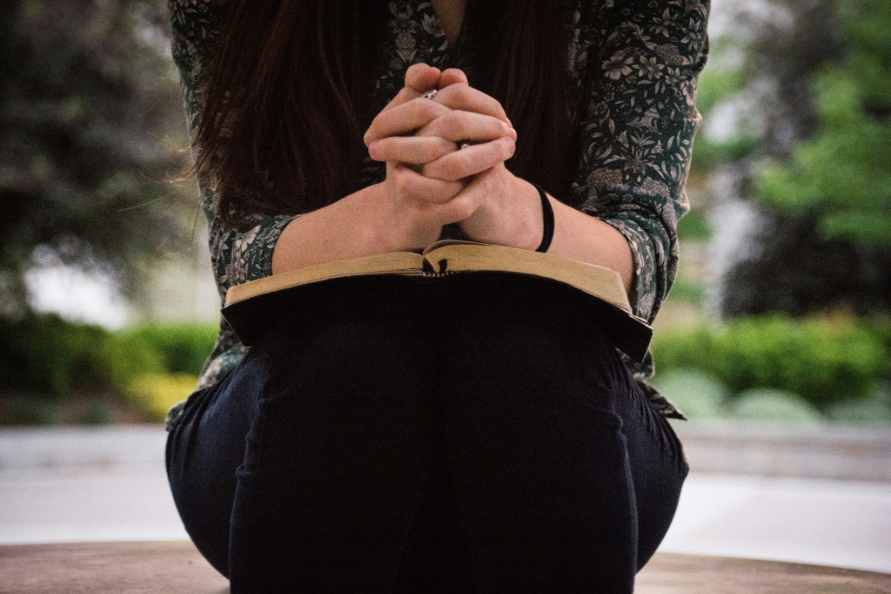Prayer is the means by which God gets his work done on earth. Elijah’s prayers literally altered the weather. His story is pretty incredible.
Elijah served as a prophet during the reign of one of Israel’s worst kings, King Ahab. After years and years of unfaithfulness, Elijah confronted the king face to face, telling Ahab that as a sign of God’s wrath, God was going to withhold rain—not even a drop of dew—until Elijah said so.
And for three and a half years, not one drop fell on the land. A terrible famine took over. So Elijah returned to Ahab and said, in essence, “See, I told you so.” Yet Ahab refused to humble himself.
This led to the famous showdown on Mount Carmel, where two altars were built, one to God and one to Baal. Then prayers were prayed to see exactly who would answer.
The prophets of Baal danced and prayed for several hours, but nothing happened. Elijah looked on, scoffing at them. (“Maybe your little god is on the toilet? Maybe he took a nap. Pray louder!”) Then Elijah prayed a simple, “God, show up.”
Immediately, fire fell from heaven, incinerating the altar. All of the Israelites present repented and said, “The Lord is God!” And Elijah, at this point on a hot streak, prayed for God to end the drought. Sure enough, his prayers were answered, and the rains came.
That’s the kind of prayer I’d love to see happen in my life. Wouldn’t you?
James writes about this experience and says, “This isn’t just for Elijah.” He knows we’ll find that claim unbelievable, but he makes it anyway: We can expect God to move just like he did when Elijah prayed.
Here’s how James put it: “Elijah was a man with a nature like ours …” (James 5:17 ESV). Elijah was just like us! We tend to see people like him as some kind of superhero of the faith, with a direct line to God. But according to James, he’s not. Elijah was just a man who perceived what God wanted and prayed it into existence.
You see, Elijah wasn’t just out there changing the weather because he wanted to. He knew from the book of Deuteronomy what God had said would happen when the people strayed—God promised a drought on the land—so Elijah simply prayed for that. And he knew what God had said would happen when the people returned to him, too—the drought would end—so he simply prayed for that. He prayed God’s stated intentions back to him.
That’s what we’re supposed to do—scour the Scriptures to learn God’s intentions, then pray them into existence. And James gives us two requirements if we’re to experience these kinds of answers to our prayers.
First, we have to be righteous. James 5:16 says that “the prayer of a righteous person has great power as it is working.” God heard Elijah’s prayer because Elijah was faithful to him, even when no one else around him was.
When we have unconfessed sin in our hearts, as Psalm 66:18 says, we put a block between us and God hearing our prayers. If we’re not God’s child, he puts himself under no obligation to hear our prayers. Only the prayer of a righteous person has great power.
We might say, “Well, I’m nowhere near as righteous as Elijah. Surely I’m not righteous enough for God to hear my prayers.” You’re probably right. But we have something Elijah didn’t—Jesus, the great high priest, one who’s perfectly righteous, praying on our behalf. Even when our words fail us, Jesus’ never do.
Second, we have to be fervent, or persistent, in prayer. When Elijah prayed for the rain to return, he did it seven times. We don’t know why God didn’t send the rain to Israel the first time, or the second, or even the sixth time Elijah asked. But if there’s one thing Jesus taught about prayer, it’s that God rewards persistence. Some things only come through the waiting and asking.
It’s not enough to pray once about something and then drop it. Jesus said we should be like the man at midnight who’s desperately trying to wake his neighbors up because he has surprise house guests and needs to provide for them. We should be like the poor widow who has no money to fight in court, so she shows up at the judge’s front door day after day after day to demand justice.
There are some things about which we have to pray and pray and pray and pray and refuse to quit until God responds.
Just like Elijah.


